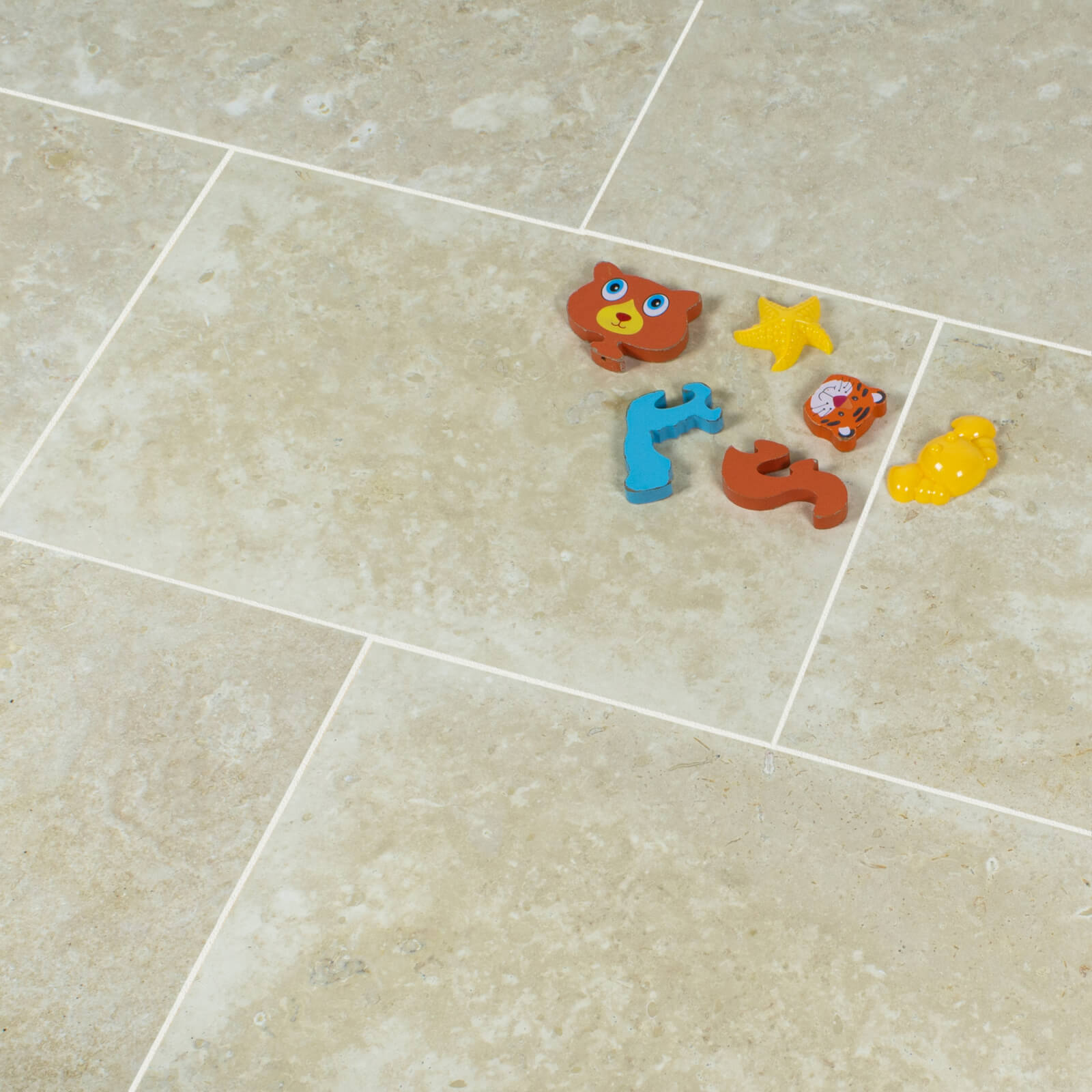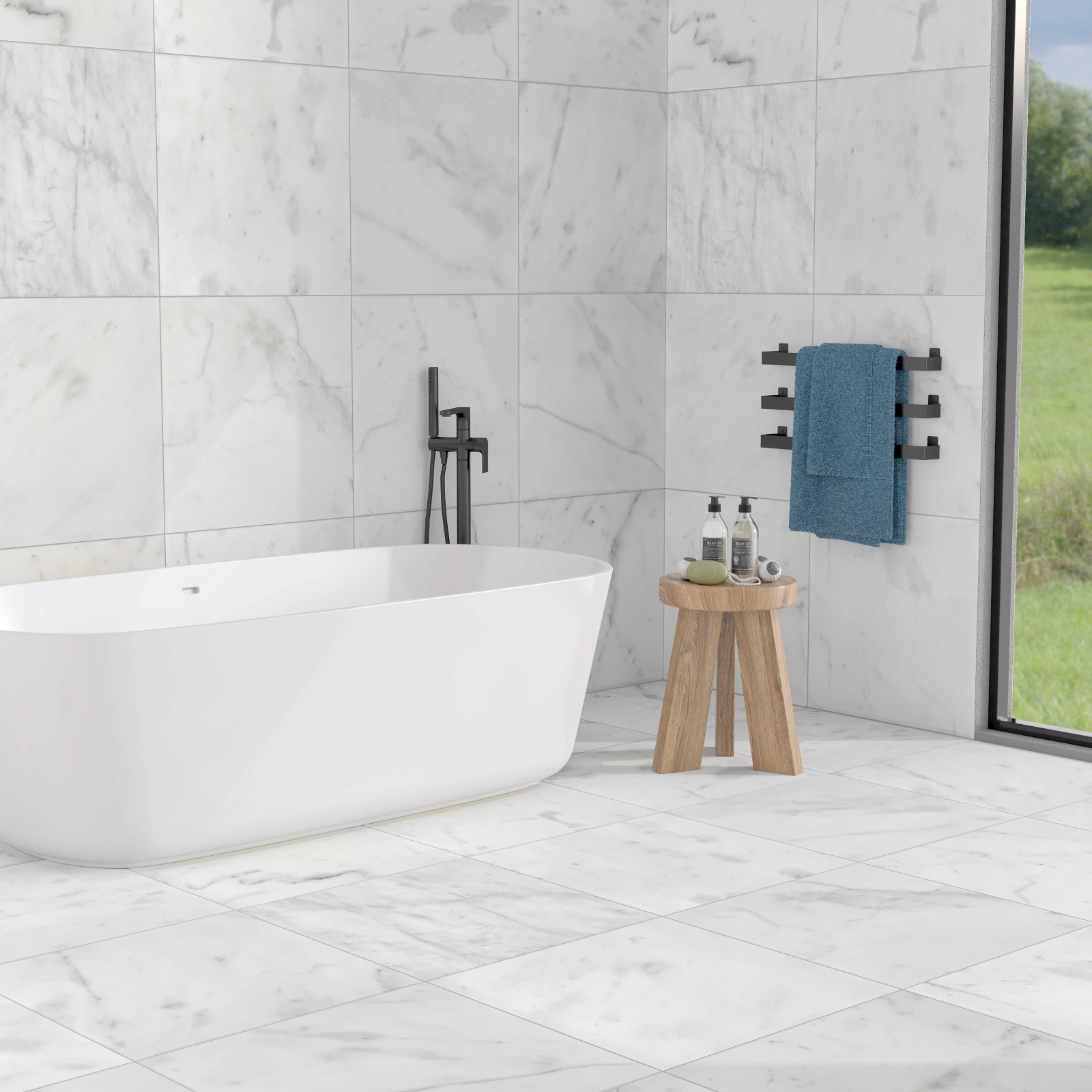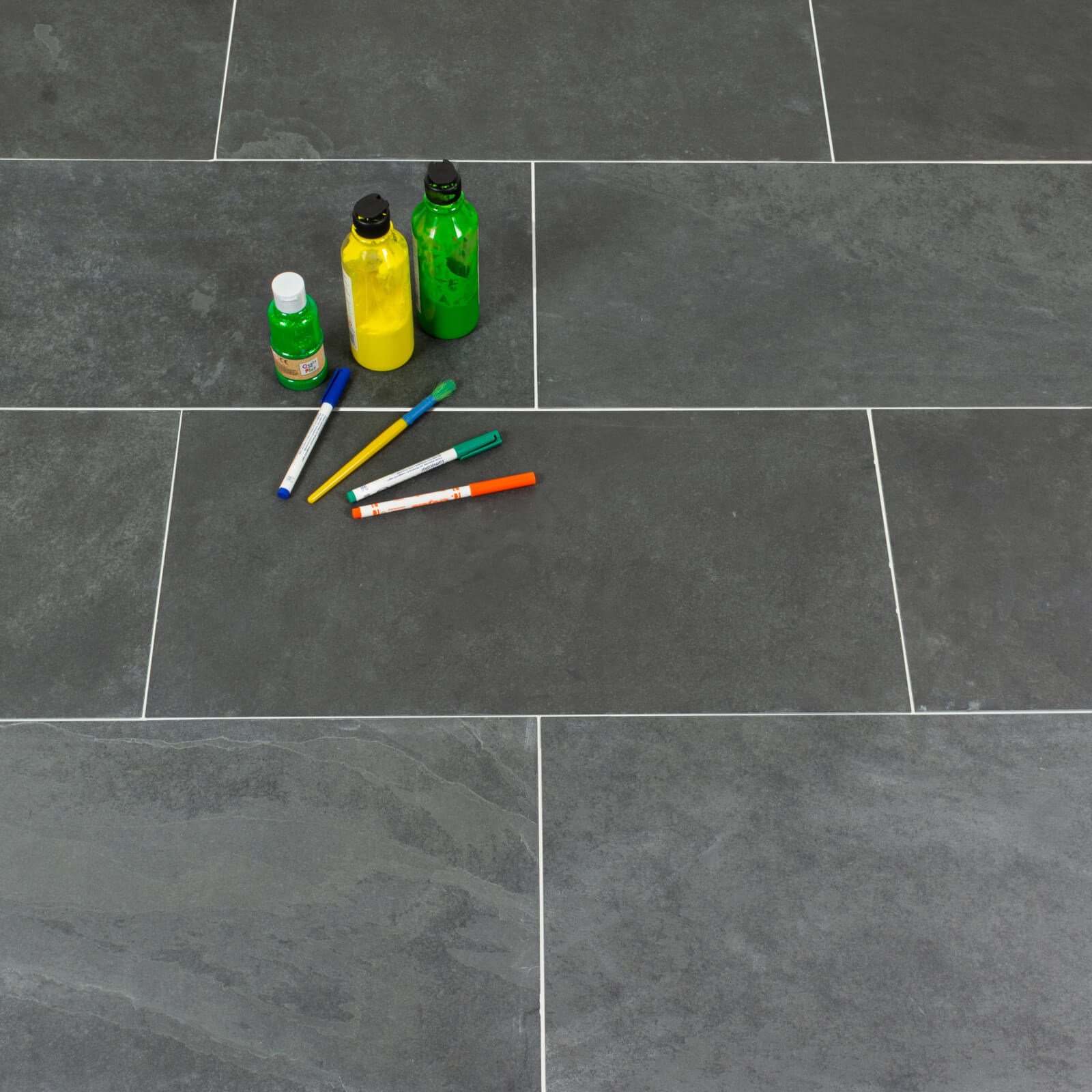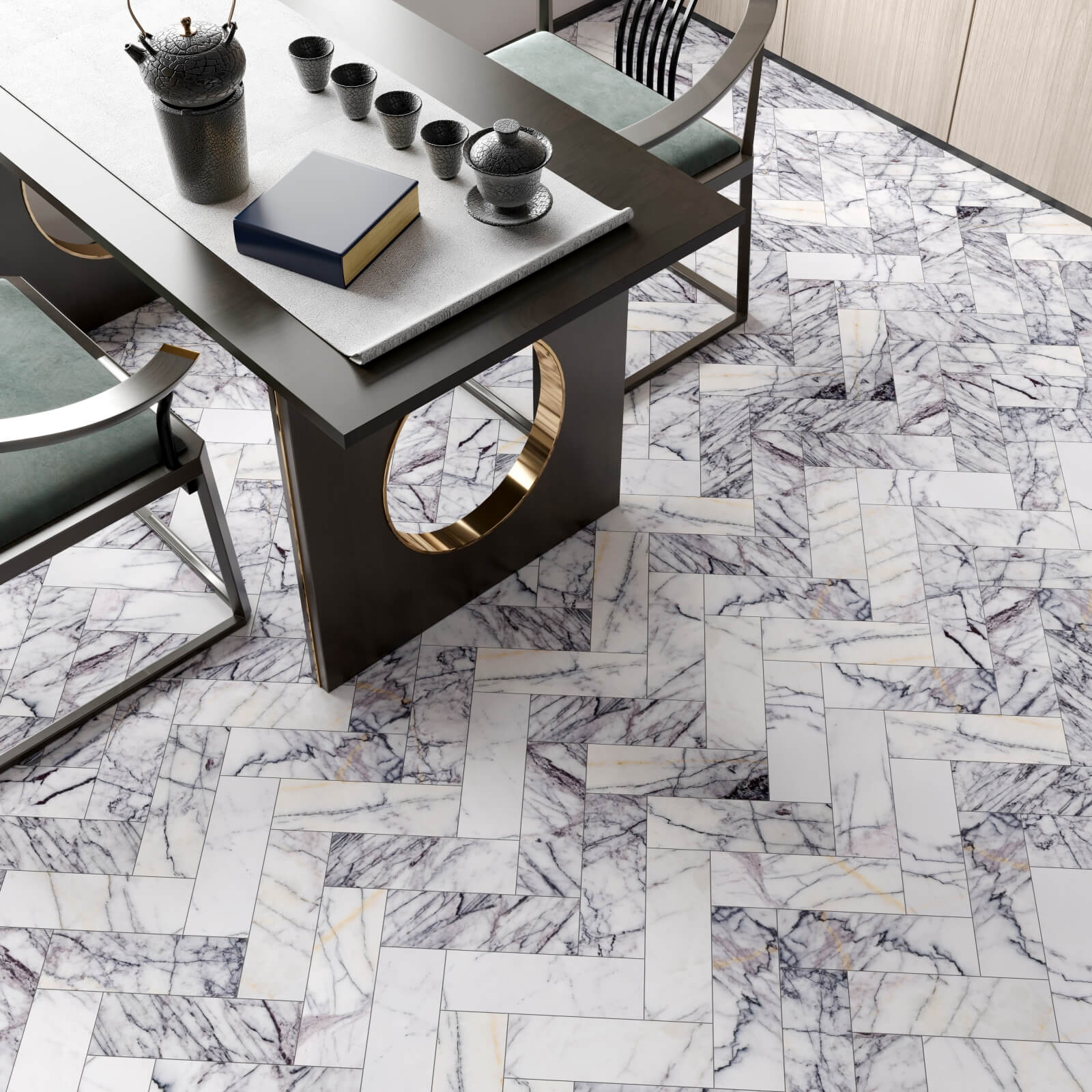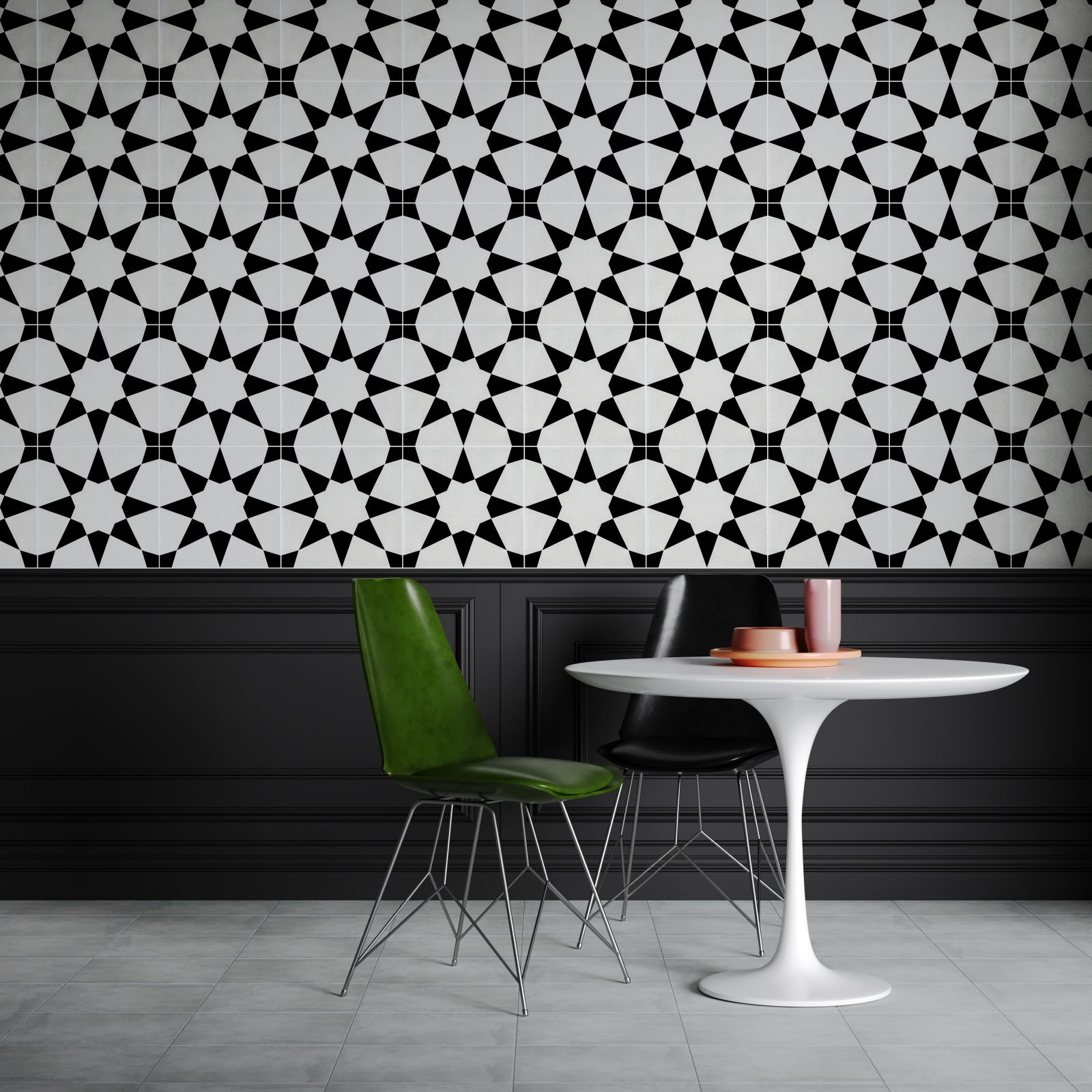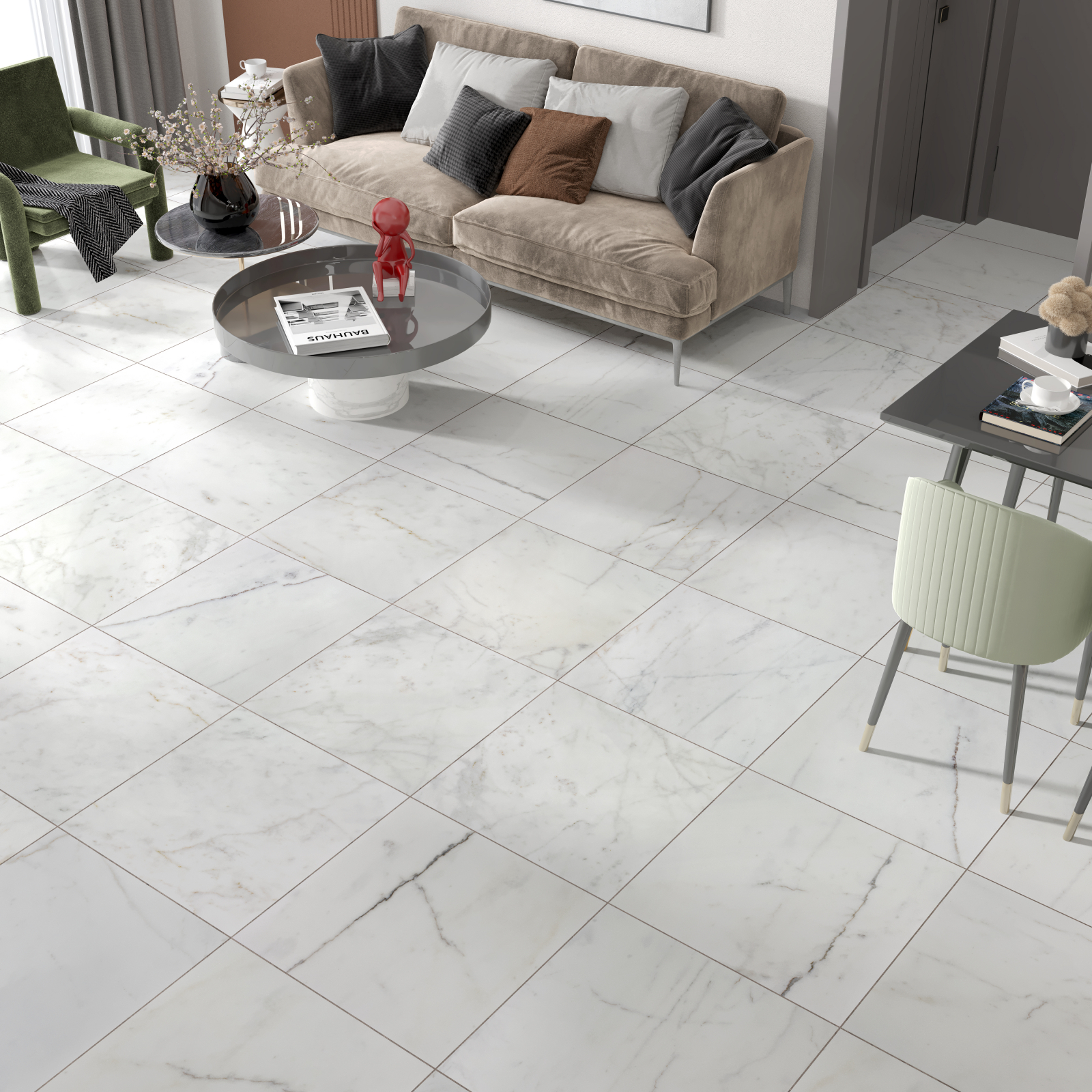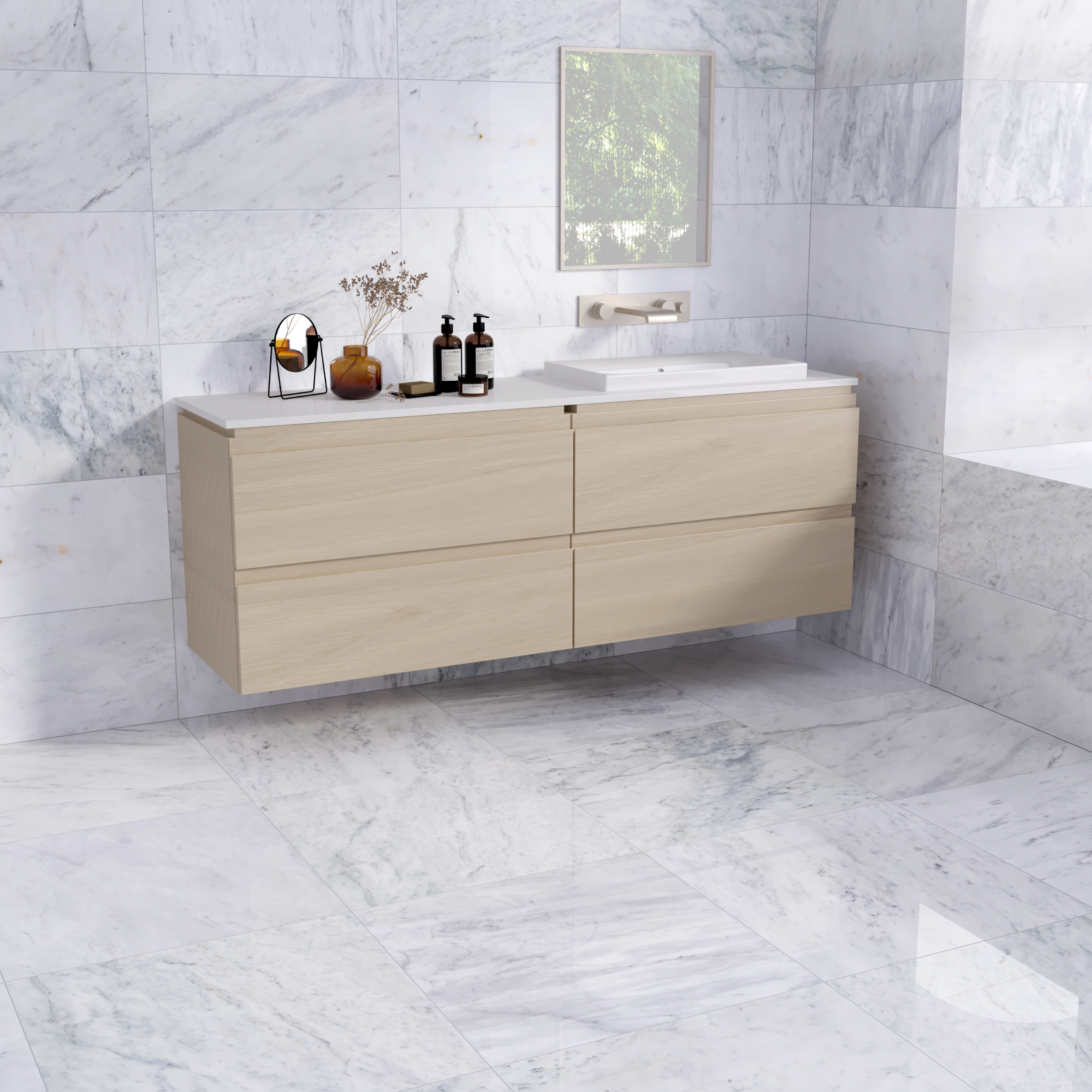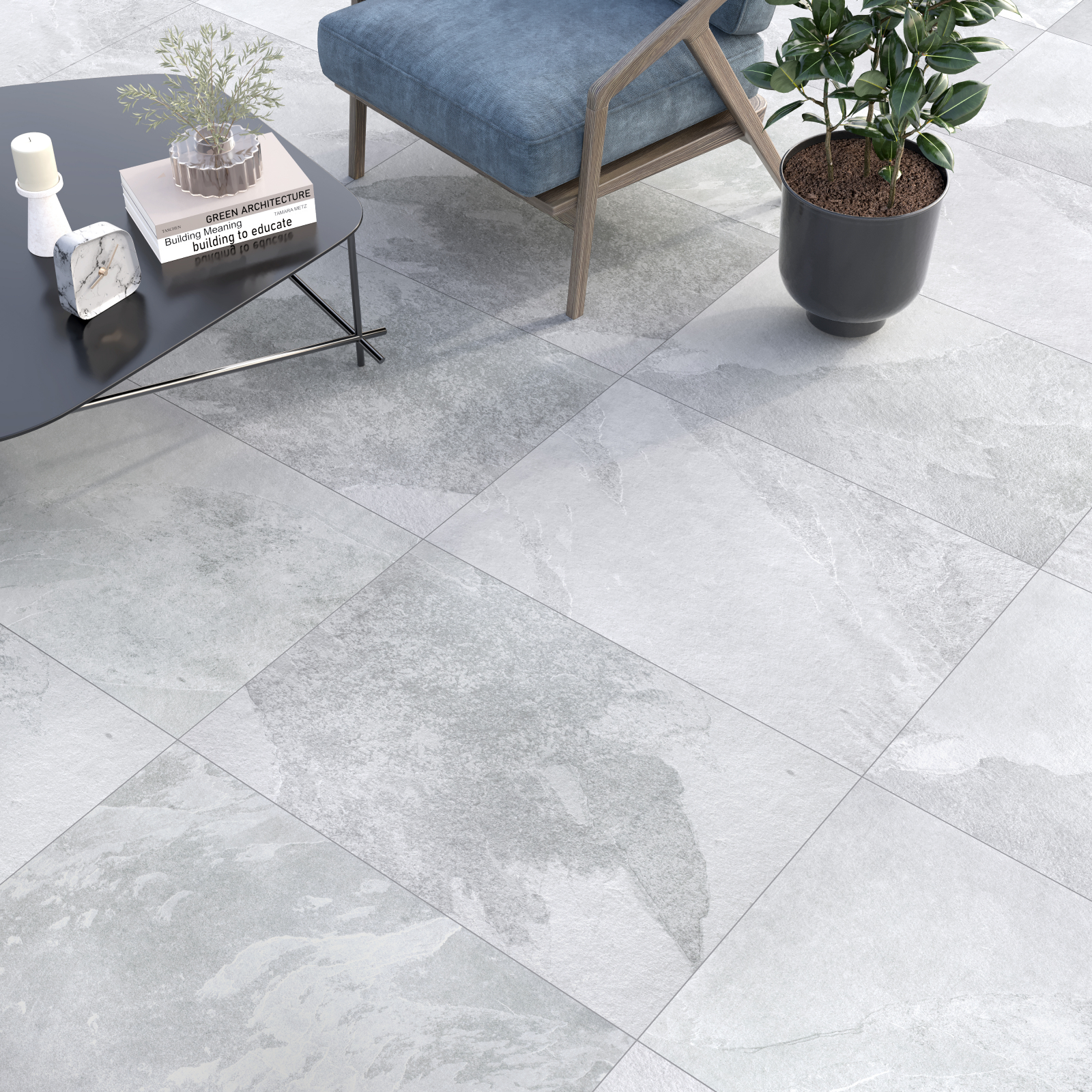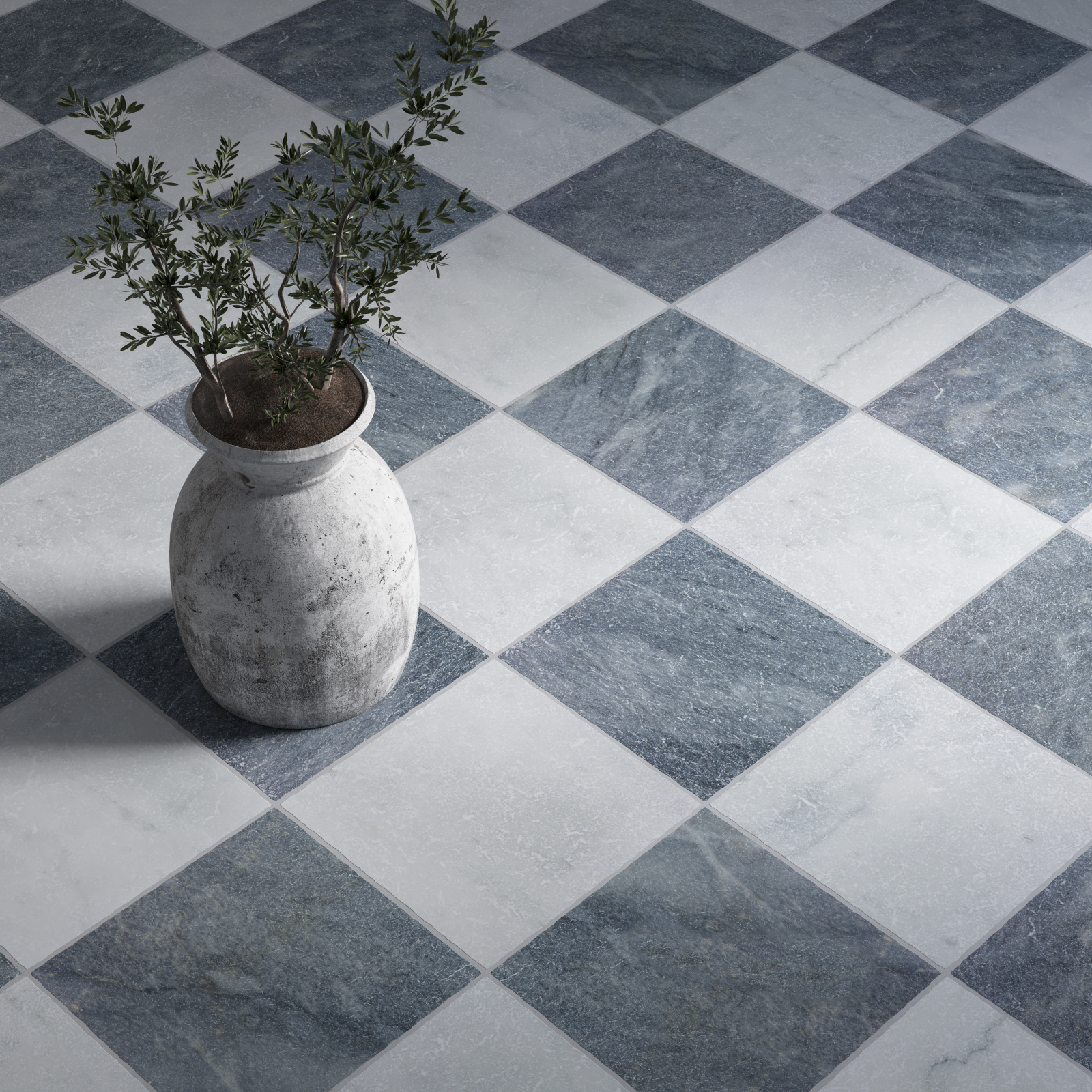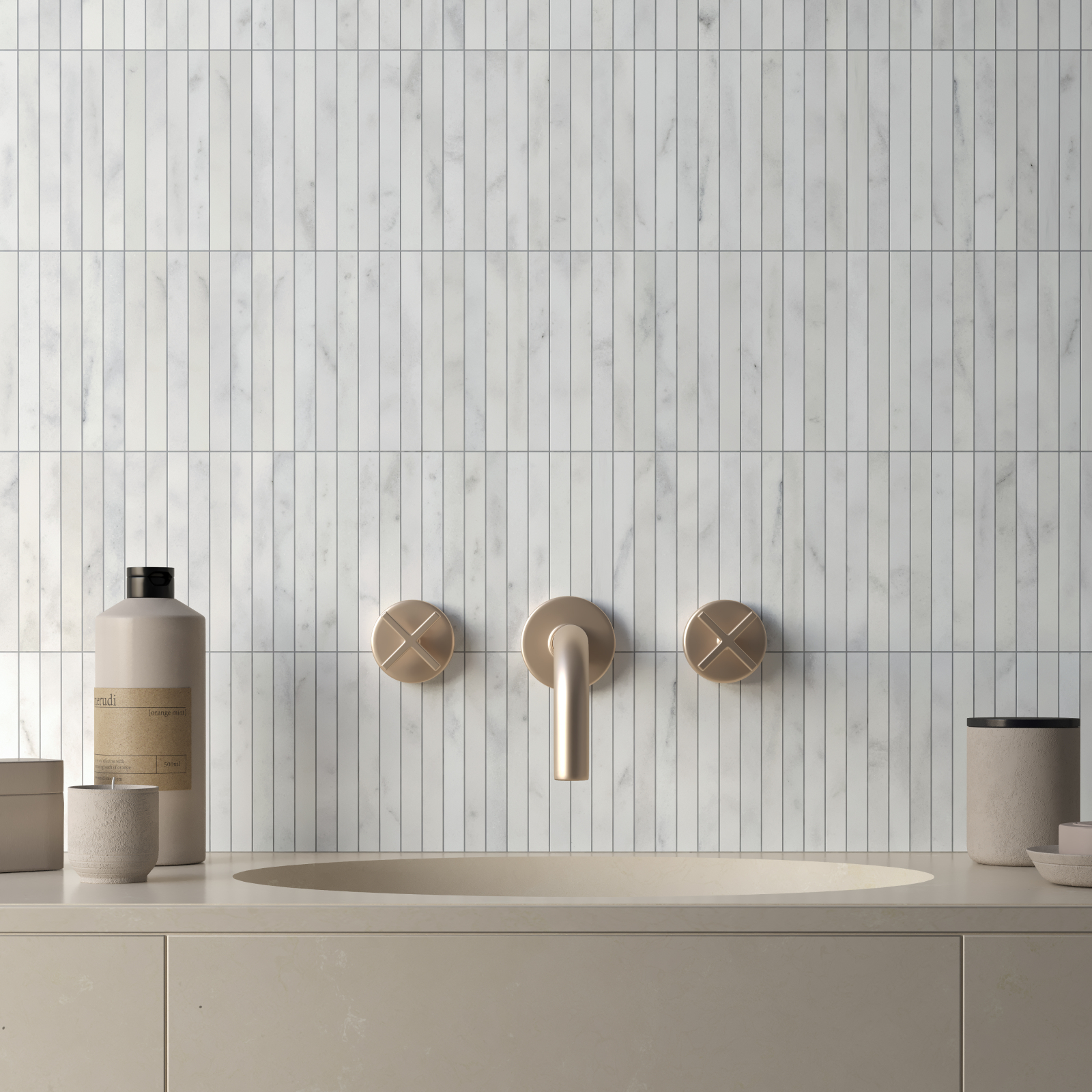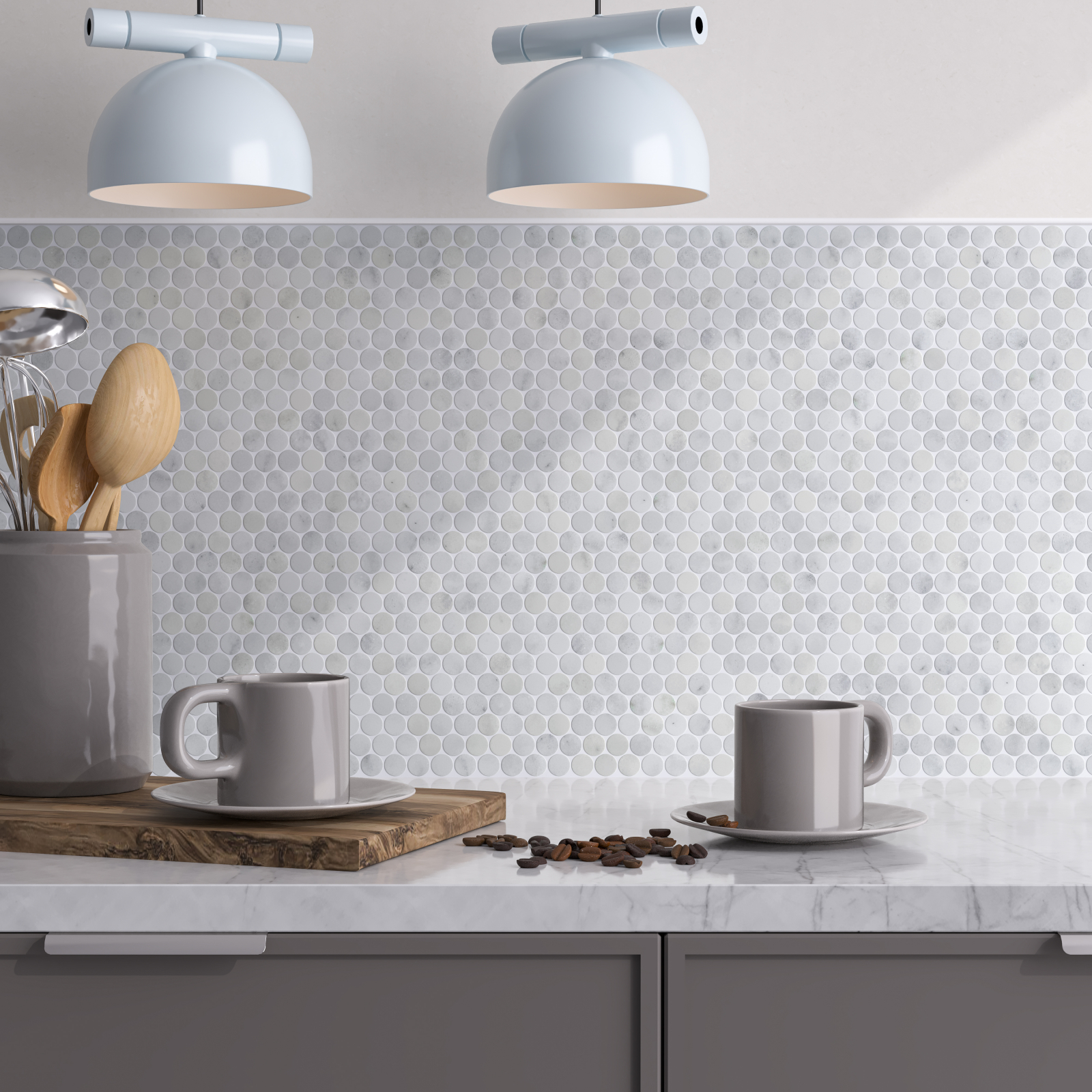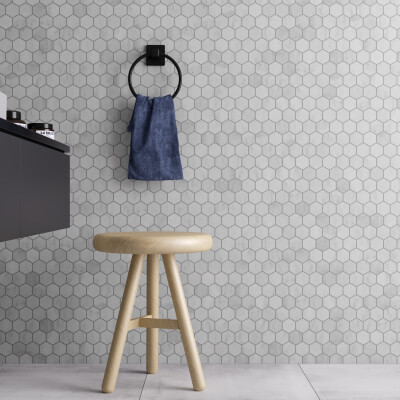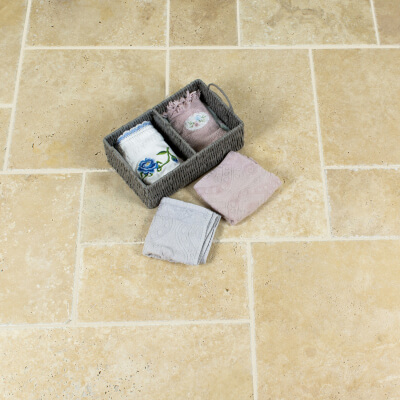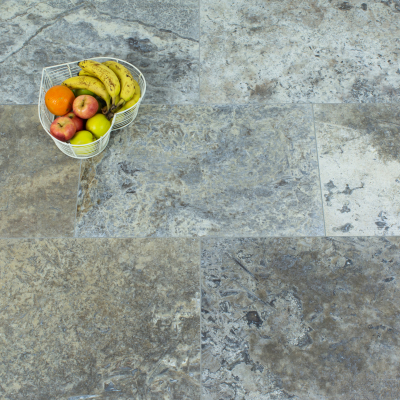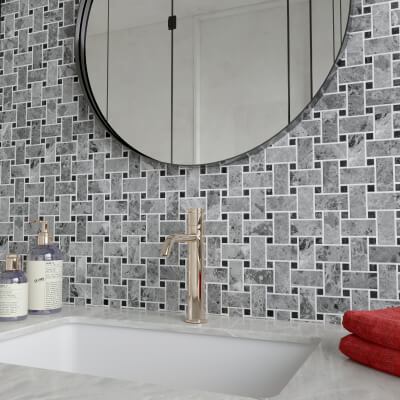Understanding Slip Resistant Tiles & Where To Use Them
Explaining Slip Resistance?
Well, slip resistance in basic terms is the amount of force that is required to keep an object in motion as it slides over a tile. Simply put, the more force that is required to do this, the more slip-resistant the tile is.
Please be reminded that this doesn’t mean that a person cannot slip on slip-resistant tiles. It just means more force is required to cause a slip. The truth is that it is very hard to predict what can happen as there are so many factors that can affect the resistance of a tile, from the material that a worn-out shoe is made from, to the speed of the stride of someone in a hurry.
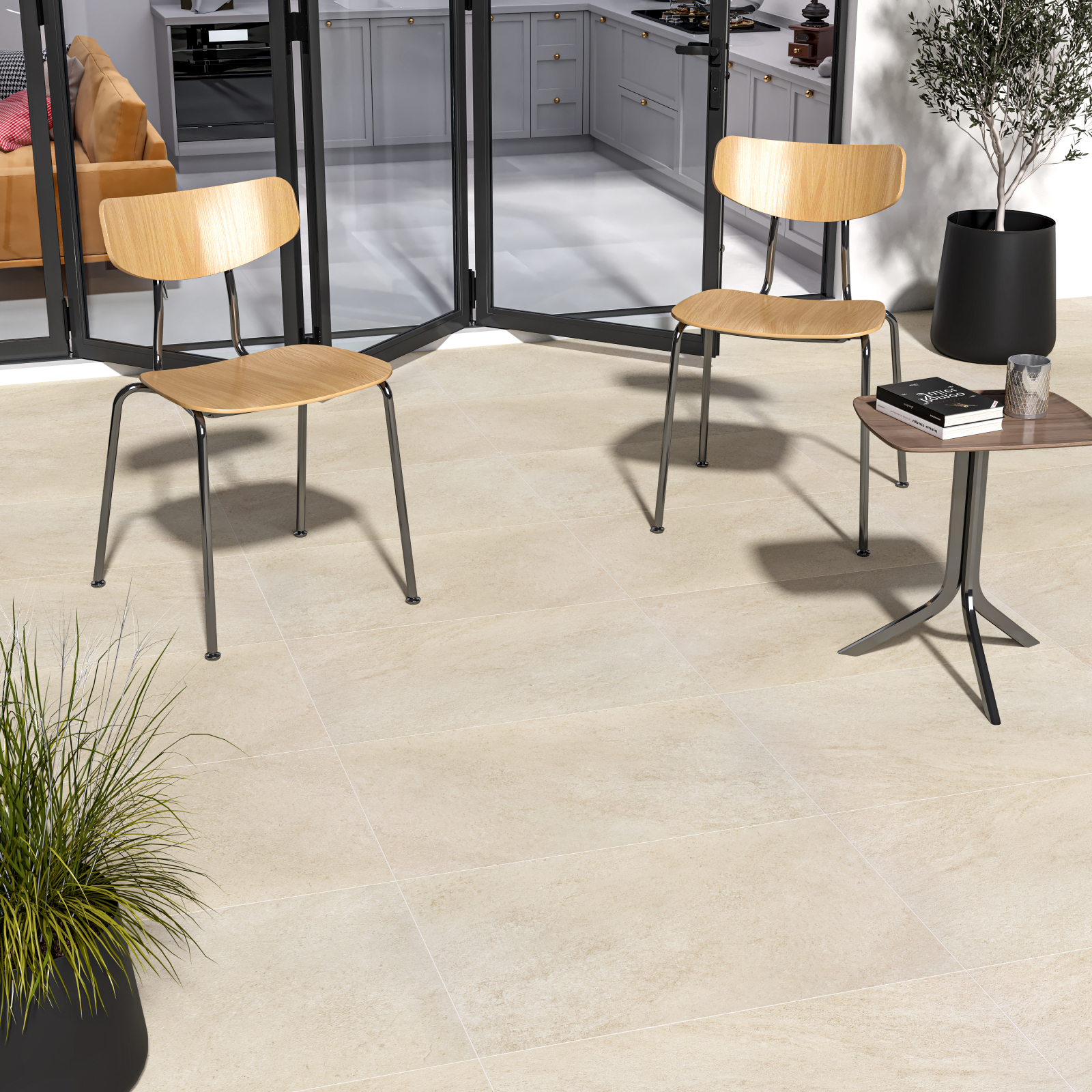
What are slip-resistant tiles?
Slip-resistant tiles are man-made tiles that have a level of certification which makes them suitable for use in areas such as bathrooms, hallways, patios, gardens and even commercial areas in workplaces. When we are looking at selecting the safest tiles for your home or for commercial business, we would like to ensure safety and pay close attention to their slip resistance. After all, if we don’t consider safety, we will be risking accidents and causing risks to the health of our family members, visitors, ourselves or our employees in our work environment.
Some of the more risky areas where accidents may occur if you don’t take precautions and install slip-resistant tiles include:
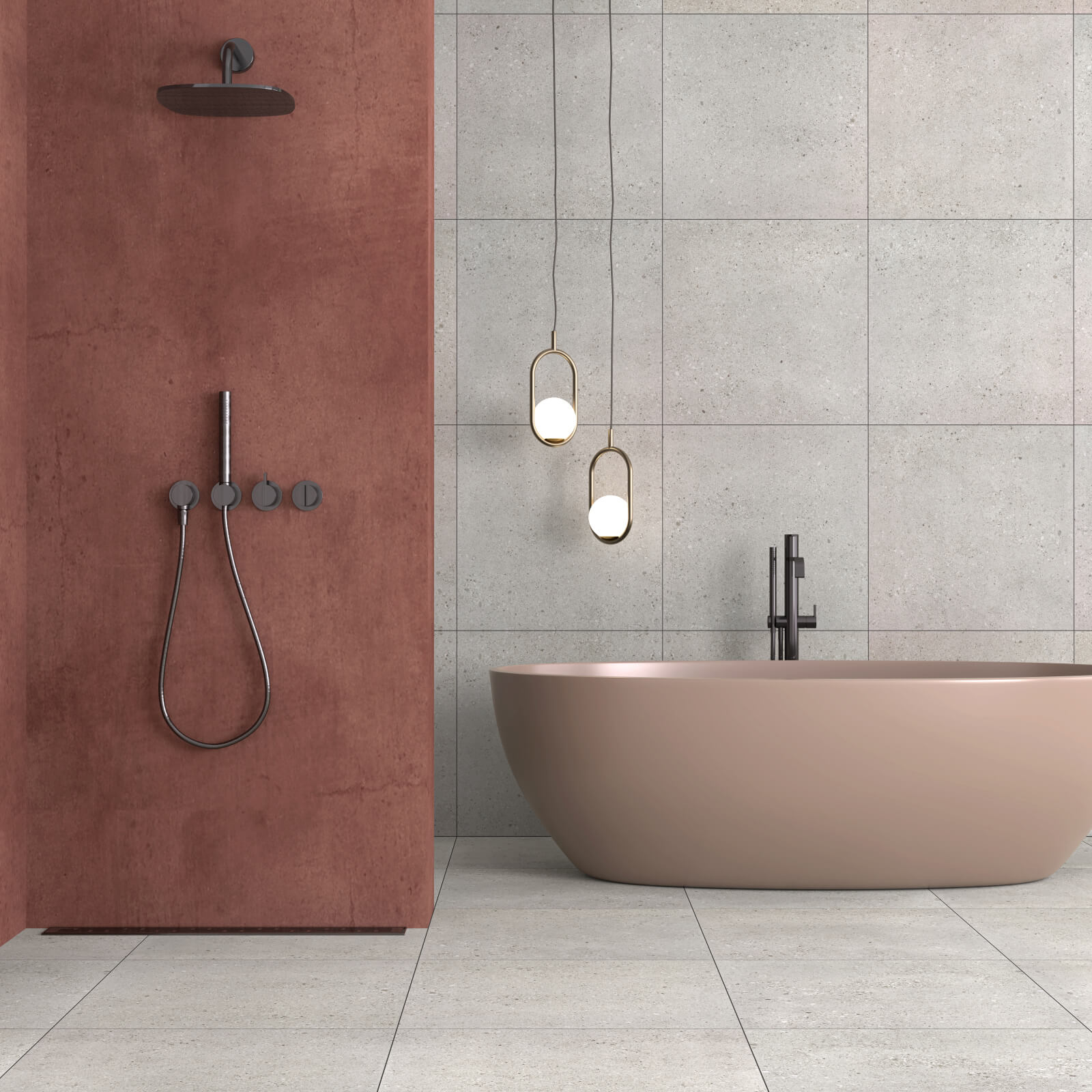
Bathrooms:
When getting out of the shower and you don’t have a mat on the floor, a wet floor can get extremely slippery on surfaces that have no slip resistance, speaking from experience here, you are sure to have accidents in bathrooms at some point if the correct tile is not installed on your floor.
Hallways and living areas:
Slip-resistant tiles are especially important to use in these areas if you have small kids that are running around the house, or an elderly relative living with us, frail bodies are more prone to easy injuries and it’s safe to say none of us want them to slip and have an unwanted accident that may cause them serious injuries.
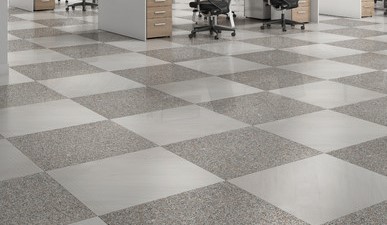
Commercial environments:
No matter what business you own, whether you have a takeaway, own a grocery store or run an office, people will be walking around with wet shoes or trainers at some point, this could be, coming into your store or shop on a rainy day or your genitors having just mopped your office floor, this can lead to accidents that can cause injuries and lead to potential lawsuits.
Although some many other circumstances and environments will require slip-resistant tiles, we think by now you got the picture and understand the importance of slip-resistant tiles in certain environments.
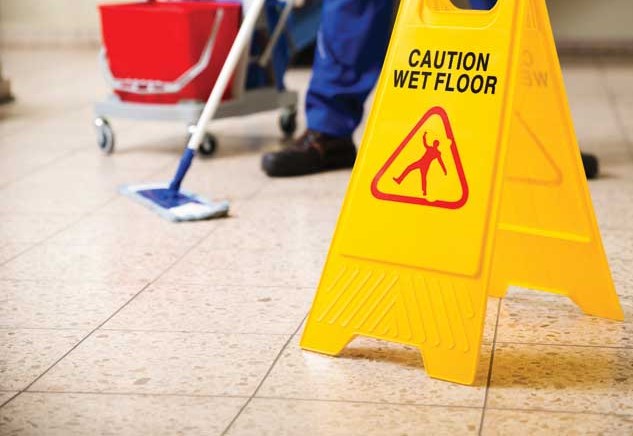
How identify and choose a slip-resistant tile?
Here in Europe, we use the ISO standards of rating and certifying tiles for slip resistance. The value that you need to look at is the “R” value.
“Inclined Ramp Test for Shod Feet
During the Inclined Ramp Test, a tiled ramp is lubricated and gradually inclined to find the slipping angle of the tile. The subject wears shoes with a standardised rubber sole during the testing.
• R9 is suitable for dry internal domestic floors like kitchens, dining areas, hallways etc.
• R10 is great for internal domestic floors that sometimes get wet, like bathrooms and kitchens.
• R11 is perfect for external areas like patios, walkways, balconies or areas subject to heavy wetting like wet rooms.
Some tiles have an additional rating, where the above test is conducted with bare feet – these tiles will have both an R rating and an A-C rating.”
We hope this blog helped explain you understand the risks and important of slip resistant tile in certain environments, which will hopefully help you avoid unwanted accidents and avoidable lawsuits.


